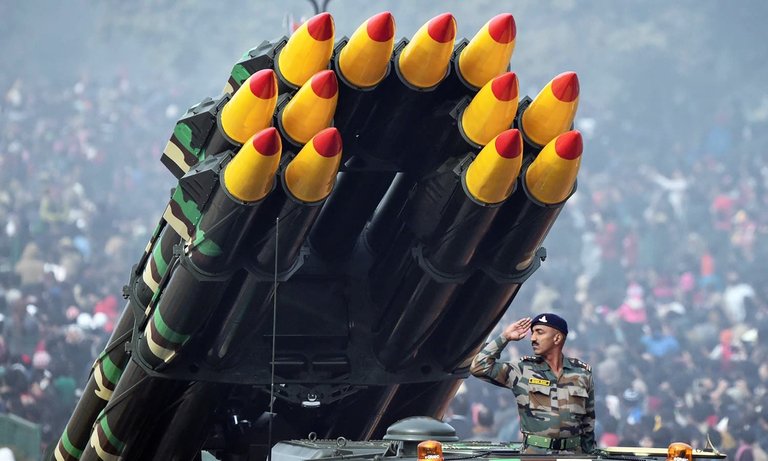The Indo-China Border War of 1962 was regarded as a forgettable event of India, but in that unequal battle, Indian soldiers made miracles.

The Sino-Indian border war broke out on October 20, 1962, marking China's massive advance across the disputed areas of India.
Unequal battle
Chinese troops crossed the Aksai Chin Plateau towards the Ladakh area, where the Rezang La strategic high point was. If the Chunsul military airport located in this area falls, India could completely lose Ladakh to Chinese hands.
The most important defensive responsibility in Ladakh was to place 123 Indian soldiers from two infantry battalions commanded by Major Shaitan Singh.
The Indian Army, which was stationed between September and December 18, 1962, had to fight the Chinese forces in an unequal battle.
It was a cold Sunday and the temperature was down to minus 40 degrees Celsius. A small spot on the hands in such weather would also force the hand to be cut off.
Humans can not survive in such a temperature for long periods of time, but Indian soldiers still struggle to defend their territory.
To lose the Rezang La peak, which is 4,800 meters above sea level, means that India will not be able to access Ladakh from the northeast.
At 3:30 am, 5,000-6,000 Chinese troops attacked Rezang La under artillery support. Chinese forces were armed with extremely heavy firepower including machine guns, mortars, 120mm rockets, 75mm recoilless rifles and 57mm mortars designed to attack military bases.
When Major Shaitan Singh noticed the Chinese attack, he called the command center and asked for help. Shaitan said over the radio that he and his men would remain entrenched until the reinforcements arrived.
However, the request was rejected because India was unwilling to use a transport aircraft carrying weapons and personnel to Rezang La. The command also ordered Shaitan to withdraw his men from the area to avoid casualties.
Major Shaitan Singh replied that he would not leave Rezang La and decided to fight to the last breath.
In the final message to the troops under his command, Shaitan said: "Rezang La has been feeding us for so many years, the time has come for us to defend this place. I ask everyone to keep their place and fight for Rezang La protection. "
Great Indian death knight
In the context of the thousands of Chinese troops approaching the defenses of 123 Indian soldiers, Major Shaitan Singh ordered people to calm down and not waste ammunition.
Only when the Chinese troops approached, Indian soldiers fired guns at the enemy surprise.
Indian military sources said that Chinese soldiers telephoned the command center, announcing "false intelligence and we were only a few meters away from Rezang La. It seems that there are 3,000 Indian troops entrenched here. "
The Chinese, despite heavy casualties, were supported by ammunition and reinforced by troops, so they continued to attack nonstop for five hours.
Captain Ramchander Yadav, one of the six survivors on the Indian side, recounted that the Chinese did not seem to be afraid. "They attacked repeatedly despite being pushed twice."
By the time the ammunition was exhausted, Indian soldiers had to fight with knives and bayonets.
Yadav says the soldier, Naik Ram Singh, was a wrestler. He uses a knife to kill all nearby enemies until they are shot in the head.
Major Shaitan Singh himself is one of the bravest fighters. He snatched the Chinese automatic machine gun and fired it nonstop until he collapsed.
Yadav recounts that Shaitan's body is filled with bullet holes. The major man still holds the trigger until the last moment.
Yadav says he was ordered by Major Shaitan Singh to return to headquarters to tell what had happened in Rezang La and how the brave Indian soldiers were fighting to death.
Of the 123 returnees in Rezang La, 114 were killed, eight were taken prisoner and Yadav arrived at the headquarters at 1 pm the next day (November 19, 1962).
The tragic death of 123 Indian soldiers in front of 5,000 Chinese troops
The memorial to the Indian soldiers fell during the Battle of Rezang La.
The miracle was that these prisoners escaped back to India shortly after the war.
In Rezang La today there is a small memorial plaque, bearing in mind the work of the soldiers fighting to the last breath to protect the territory. The stele wrote that the Chinese casualties were about 1,300.
In an interview on India Express, Yadav said, "No one believes we have destroyed so many enemies. But it is true".
Yadav said the Chinese troops were everywhere and his unit was just giving in because of the exhaustion of ammunition.
This historical death row was made by Bollywood film in 1964 and the song Kar Chale Hum Fida in the film made many Indians shed tears.
By November 21, 1962, China suddenly announced its goal in the border war and withdrawal.
Ladakh today becomes a popular tourist destination for adventurous people. Tourists are also allowed to visit 123 Indian soldiers who died in the past.
I'm gonna be honest. It looks like you just copied and pasted some article with a timeline of The Indo-China Border War of 1962 without giving credit to the original source.